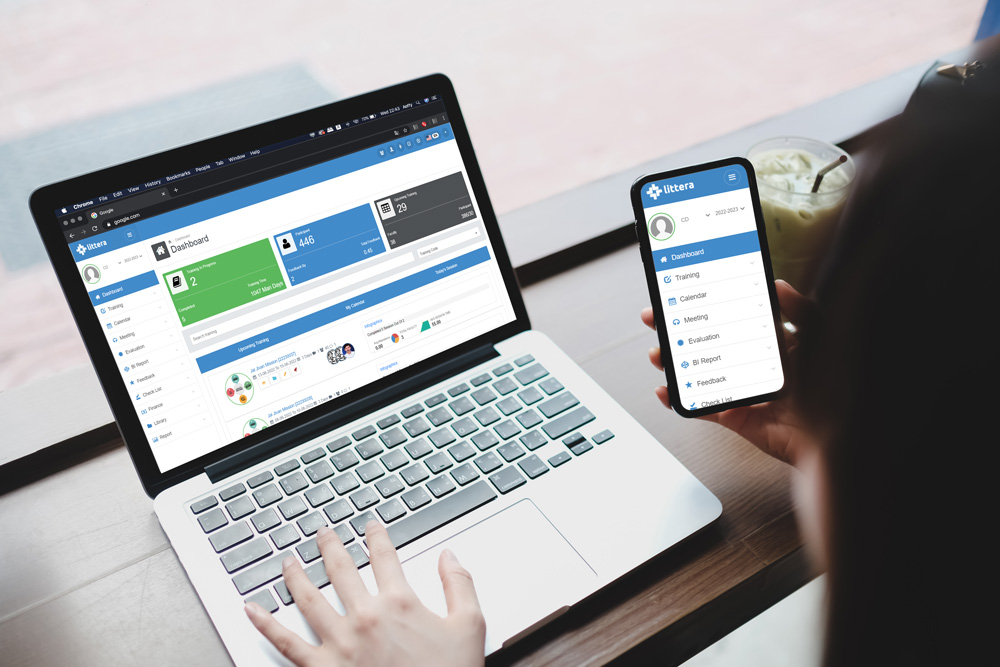It is critical to precisely define capacity building for corporates in all of its varied components to gain a better understanding of the function of investments in the capacity building of an organization.
Capacity development is an ongoing process that prepares officials, stakeholders, and the community to perform their roles more effectively during a crisis or disaster. Individual training, organizational development, such as strengthening the functioning of groups and organizations, and institutional capacity-building growth must all be included in the capacity-building process.

Capacity-building for corporates is defined as the process of developing and enhancing the skills, instincts, abilities, processes, and resources that organizations and communities require to survive, adapt, and prosper in a rapidly changing world. A transformation that is created and sustained over time from the inside is a crucial component in capacity-building; transformation of this type extends beyond completing tasks to changing mindsets and attitudes.

Versatile Sessions
The most appealing aspect of Littera microlearning is its flexibility, which contributes to many learners selecting this choice over more traditional education. Short videos, interactive quizzes, or other engaging forms have a positive impact on overall learning while providing ease and increased freedom and flexibility.
Lean
A program includes some ideal members to implement effectively because each group has its unique & distinct characteristics, performs distinct purposes, and can result in positive, neutral, or negative experiences.


Alterable
Employees can routinely acquire new knowledge and talents at their speed by adding Littera to their learning journey. It might apply to a large number of employees from diverse departments and places.
Easy accessible
A computer is not required to access a Littera lesson. All lessons are designed so that students may access them on any platform, including cellphones, tablets, notebook PCs, and iPads.


Immaculate
Littera is available in a variety of media such as videos, podcasts, infographics, and interactive PDFs, and is designed with a single performance objective and targeted content in mind, making it suitable for learners with short attention spans and busy schedules.
Computation
Pre- and post-training assessments can help make certain that the training program is tailored to the unique needs of employees, that it is effective in imparting new skills and information, and that it is constantly refined to generate better results. Assessments can motivate people to study by providing a gauge of their development and ability to apply new skills and information.


Collaboration
Littera courses’ interactive structure encourages active participation and information retention, ensuring that employees can use what they’ve learned in real-world situations. Rather than feeling overwhelmed or pressured by lengthy training sessions, employees can continually acquire new knowledge and abilities at their own pace by incorporating microlearning into their learning journey.
Multimedia options
Littera also enables different learning modalities by including pictures, videos, and audio materials. Incorporating real-life images and scenarios through multimedia allows learners to connect training materials to actual applications in the workplace, making the learning experience more relevant and actionable.


Manageable
Littera provides a flexible and simple approach to learning, allowing employees to easily access bite-sized, tailored knowledge that is relevant to their unique needs.
Organizational Development
Littera encourages team members to participate and collaborate openly. This can be aided by holding regular meetings, delivering progress reports, and creating a climate in which everyone feels comfortable offering ideas and thoughts. Organizations must prioritize staff development as a critical component of their overall success strategy.


Reporting
Regularly, monitor and evaluate the program’s progress. This will help you identify any problems or places that require attention and allow for timely changes. It also offers assistance and tools to address any concerns or challenges that may arise during deployment.
FAQs (Frequently Asked Questions)
For what reason do companies need capacity building for corporates?
Organizational capacity building is fundamental for corporates to upgrade their business processes, amplify efficiency, and remain serious on the lookout. Putting resources into capacity building can assist with creating representative abilities, advance novel thoughts and cycles, and increment worker fulfillment and maintenance.
How does capacity-building for corporates program can be effectively developed?
Corporations need to identify the precise skills and knowledge that employees need to learn to construct an effective capacity-building program. They can then construct personalized training modules, mentorship programs, career development chances, and staff exchange activities to help their employees grow their abilities.
How can companies assess the success of their capacity-building for corporates initiatives?
Corporates can analyze employee knowledge and skills before and after training interventions to determine the effectiveness of their capacity-building programs. They can also conduct surveys. These surveys provide significant insights into program efficacy and assist in identifying areas for improvement.
Productivity increases can be used as a major measure of success, as organizations may see higher efficiency and production from staff who have received training. Companies can increase the effectiveness of their capacity-building for corporate efforts by reducing errors or expenses.
Increased income created by enhanced employee performance might be viewed as a beneficial effect of institutional capacity-building programs. Thus, corporates can completely examine the impact and performance of their targeted capacity-building for NGOs.

